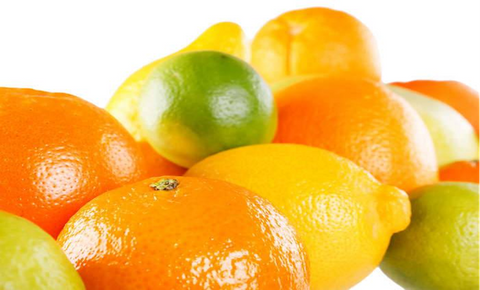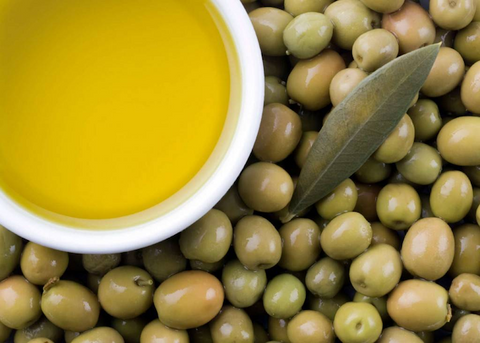
Foods that shouldn't be refrigerated.
The modern quality of life allows us to keep food fresh without much effort. But having a big refrigerator, we don’t really think about why food gets spoiled a couple of days after it’s bought. At the same time, some types of foods should not be refrigerated, as that changes their taste. At worst, the quality of the foods stored there changes as well. There are cases when storing food in a fridge result in mold even faster than storing it under normal conditions. Below is a list of food products that should definitely not be refrigerated.

Tomatoes definitely cannot be stored in the fridge, as they lose their taste in there. The reason is, the cold air stops the ripening process and their taste properties get compromised. Cold air also affects the density of tomatoes, as it destroys their inner fibers, making them crumbly. The best way to keep your tomatoes fresh is to put them in a basket or a glass bowl in the kitchen.

The biggest issue is the storage of basil, as it absorbs all the smells of the nearby foods in the fridge. Instead, it’s best to keep it outside the fridge, in a bowl of freshwater.

Another big mistake is storing potatoes in a cold place. Low temperatures turn potato starch into sugar faster than you might think. Try storing your potatoes at home in a paper bag in a cool, dark place. It’s better to keep potatoes in paper bags rather than in plastic ones, because this way potatoes will receive more air, and the spoilage process will slow down.

Garlic and potatoes have a common problem. It should be stored in a dark, cool place. When temperatures are too low, garlic will start to sprout and may become moldy.

The moisture inside an onion will soften it and eventually lead it to decay if you put it in the fridge. It’s better to keep the onions in a dry, cool, dark place. However, potatoes and onions should be stored separately, because they will spoil faster if kept together.

There are some tricks about storing avocados in the refrigerator. If you bought a ripe avocado, but you’re not going to use it right now, you can put it in the fridge. However, if you want your avocados to ripen, don’t put them in the fridge. The cold air stops the ripening.

Many people would agree that keeping olive oil in the fridge is not a good idea. At low temperatures, it thickens and turns into a solid substance similar to butter. Keep your favorite olive oil in a cool, dark place.

One of the biggest mistakes you can make when trying to keep foods fresh is keeping your bread in the fridge. Bread should be stored outside of it, as it will dry out very quickly otherwise. Generally, the bread you plan to eat over the next four days should be sliced and ready to eat, and the rest kept frozen. Rest assured, wrapped bread will not lose moisture in the freezer. When you get it out, let the bread thaw slowly and completely before you toast it or eat it.

Coffee will lose its flavor if you put it in the fridge. Just like basil, it can take on the smell of other food products. If you keep your coffee in a cool and dark place, it will preserve freshness and rich taste. But remember, storing coffee this way requires a special bag with the gas escape valve. You can also store the large amounts of coffee in the freezer for a month or so, providing however you won’t be using it. Freezing, thawing and refreezing again is not a good idea.

There’s no need to store honey in the fridge as long as its jar is tightly closed. It is verified. And the best news is honey has virtually no expiration date.

Lemons, oranges, and limes should be stored in the kitchen, at room temperature. Cold air can damage the taste quality of these fruits. Meanwhile, you don’t want to keep them too close to each other outside the fridge; this can cause them to deteriorate faster.

Pickles usually have a long shelf life due to the properties of vinegar. It will keep vegetables crispy, even if you leave them in a food cabinet. However, if you prefer cold-temperature pickles, store them on the fridge door shelves, to save a cold place for foods that need it more than pickles.

The herbs you bought on the market don’t need to be kept in the fridge. Instead of spoiling their taste with cold temperatures, place them in a water-filled glass jar in the kitchen. That way your kitchen will look more attractive, and your herbs will be grateful.

Most salad dressings, and other kinds of seasoning, can be stored outside the fridge, especially those containing vinegar or oil. Keep in mind that dressings based on cream, mayonnaise, or yogurt should be kept inside the refrigerator.

Don’t be surprised! Ketchup can be kept in a regular kitchen cabinet, even when opened. It contains a lot of vinegar and preservatives, and for that reason, it can be stored outside the fridge. If you don't believe us, think about ketchup bags in all the fast-food restaurants.

Prepared foods, pre-packaged sandwiches and hot dogs should always be stored frozen or refrigerated. Always follow storage guidance found on the packaging.
By Chef Andy

